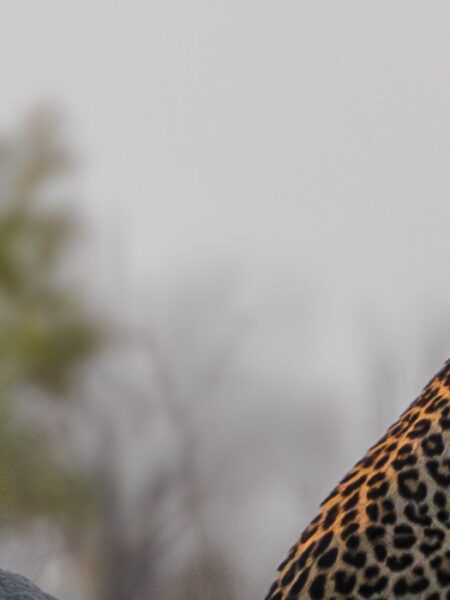This World Health Day, we are exploring why being a medical volunteer abroad is a great way to make a valuable contribution towards the global pursuit of quality healthcare. In this post we answer 5 frequently asked questions about being a medical volunteer in Africa and 5 reasons why you should join a medical volunteer program.
5 Things You Should Know About Being a Medical Volunteer
- What is a medical volunteer?
- What do medical volunteers do?
- Do you need experience or qualifications to be a medical volunteer?
- Does volunteering really help if I’m not a medical professional?
- Is volunteering abroad good for med school?
What is a medical volunteer?
Medical volunteers generally work on unpaid medical volunteer programs in hospitals, clinics, and areas with a lack of resources and manpower. These areas are usually in developing countries or countries struggling with natural disasters, disease, or conflict.
Although this can be a daunting experience, many people who join medical programs see it as a challenge and a way to enhance their skills or gain experience. Others simply feel a deep need to help that compels them to go to places in distress and offer up their hands and time.
There are 3 main types of medical volunteers:
- Medical professionals who are looking to broaden their skill set or seeking a new challenge
- Healthcare and medical students who want to gain practical experience
- People who are interested in healthcare and medicine and want to do some good in the world
Do you need experience or qualifications to be a medical volunteer?
The requirements vary from project to project.
Some medical volunteer programs require you to have qualifications or to be studying in the healthcare or medical field. Others don’t require qualifications or experience, just a keen desire to help.
Age restrictions usually apply.
These medical programs do not require experience or qualifications:
- Rural Medical & HIV/AIDS Awareness in South Africa
- Medical & Community Development in Zambia
What do medical volunteers do?
The tasks of medical volunteers depend on the program. Volunteers could work with outpatients and in different departments at hospitals and clinics, or they might accompany doctors and caregivers on house visits to treat patients who are unable to reach a medical center. Educational workshops and awareness campaigns also form a part of most medical volunteer programs.
Many programs involve a combination of duties.
If a volunteer program does not require experience or qualifications, medical volunteers are usually given tasks that do not require specialized knowledge. These could include observing patient care, taking basic vitals, baby weighing, medical record filing, packaging of medication, supporting local staff in education workshops and awareness campaigns, and assisting staff with basic procedures such as wound cleaning and dressing.
Volunteers who are enrolled, studying, or qualified in a healthcare-related course would be placed in a hospital or clinic department and have the opportunity to observe and learn in all areas. They would support medical staff under supervision and gain experience in specialized areas.
Our Hospital and Clinic Support program in Kenya is tailored to qualified volunteers and medical students.
Does volunteering really help if I’m not a medical professional?
You may have read about, and hopefully questioned, whether unqualified medical volunteers can have any impact at all if they are not trained or qualified, and the answer really depends on what organization you choose to volunteer with.
By choosing an ethical, responsible, and experienced volunteer organization, you will be placed where you are most valuable and comfortable, and where your assistance is actually needed.
Often, hospitals and clinics in countries where medical volunteer programs are active struggle with a lack of funds, shortage of skilled professionals, and need to help people who are unable to access medical treatment.
Volunteers ease the pressure on staff by assisting with patient care they otherwise would not have time for.
Is volunteering abroad good for med school?
Volunteering abroad looks good on a medical school application for several reasons.
It teaches you valuable skills such as communication, leadership, and teamwork. And it shows that you are serious about pursuing it as a career and have taken the initiative to gain insight, understanding, and experience in the field by committing yourself and your time.
However, you should not just volunteer to enhance your application. Volunteering should always be done for the right reasons, like a genuine desire to help people and improve communities.
You will be working with people – patients and medical professionals – who may have different beliefs and cultures to yours and you will witness situations that may be extremely jarring and upsetting. Therefore, it is absolutely essential that you go into it for the right reasons. It will be much easier to roll with the challenges and will make the whole experience a lot easier and far more fulfilling.
Still interested in becoming a medical volunteer?
Read on to see the 5 best things about being a medical volunteer.
5 Reasons to Become a Medical Volunteer
1. Gain hands-on experience and deal with real medical situations
Being a medical volunteer is an exciting and rewarding way to gain practical experience in the medical industry.
You will deal with real-life situations and real people, and get to explore different roles. If you want to pursue it as a career, gaining hands-on experience can help you figure out which aspect of healthcare and medicine you are passionate about, so you know where to focus your time and effort going forward.
Understandably, the majority of volunteer opportunities will not allow you to practice medicine abroad (without the appropriate license), but the experience you get and skills you learn will form a solid foundation for your career and be useful throughout your career.
If you are thinking of studying medicine or going into healthcare, it is a great way to see if it is something you truly want to do without the long-term commitment.
2. Help find innovative new solutions using limited resources
Doctors, nurses, and healthcare workers in many African countries often have to deal with limited resources, inadequate facilities, and understaffed hospitals and clinics. It is not ideal, but for reasons beyond their control, it is the reality.
Being forced to step out of your comfort zone and work in a challenging setting builds character, enhances your skills and abilities, and encourages you to collaborate with the doctors and your fellow volunteers to find innovative solutions and ways of doing things.
This can vastly improve healthcare in that region and the working conditions of the doctors and healthcare professionals working there.
Of course, it also has a remarkable way of building grit and the kind of adaptability and resilience that makes it easier to navigate a profession in medicine and life in general.
3. Meet new people from all over the world
Volunteering gives you a chance to meet people from all around the world who you wouldn’t usually cross paths with. They might have incredible stories to share, or difficult ones.
Whoever they are, where ever they come from, you share a goal of wanting to do something good and a desire to help others. Being able to work side by side with people who care about the same things is a shared experience that can have a lasting impact on your life.
You could meet your new best friend, future business partner, or have a conversation with a local that sparks a real change in your life.
4. You will help people
If this isn’t your overarching goal for volunteering, perhaps don’t buy your plane ticket, as medical volunteering is about helping people and doing what you can to improve their lives.
You will spend your time listening as people share their concerns and complaints and provide support and knowledge to the healthcare professionals you work alongside. The shared goal is to help, and if that is what you want out of it, being a medical volunteer will be an incredibly rewarding experience.
5. Have your perception of global health and medical care challenged
Seeing the tough conditions people live in and the struggles they face is disheartening and may break your heart, but it will also open your eyes and embolden you to keep making positive change in the world. It could change you in ways that make you a better person or you could realize it is something you want to devote your life to.
Whatever happens, it is something that will transform your perspective in ways you can’t even begin to imagine. That is what many people are searching for when they sign up.
Are you a medical student or interested in doing a medical internship? We offer a number of carefully curated and well-rounded medical internships in some of the most beautiful countries in Africa.
Joining a medical volunteer program or internship is a great way to make the world just a little bit better and healthier.
Ready to become a medical volunteer? Our destination managers have volunteered and know the ins and outs of each program, and which one would be best for you based on your interests.
You can send an email to contact@africanimpact.com and let us know what kind of medical placement you are looking for, or email the destination manager directly if you know which program you are interested in. They will be able to answer any questions you may have.
Stay up to date and never miss out.
To stay up to date with our latest volunteer project developments, news and promotions. No spam, just high quality content.
"*" indicates required fields
Other recent blog posts

Basic Camera Settings for Wildlife Photography

The IUCN Red List of Threatened Species




